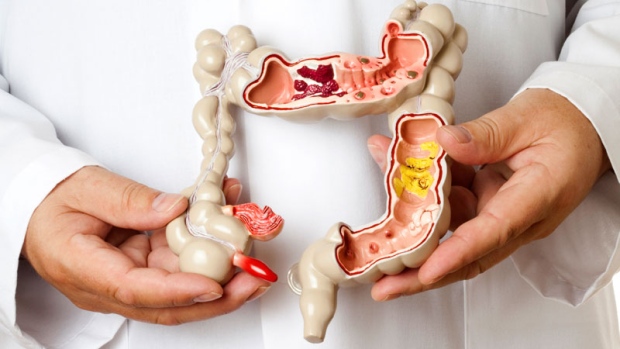It’s easy to take our bodies for granted, especially when everything is going well, but sometimes even the smallest glitch in the body can cause a lot of pain and discomfort, even more so when a cause for this glitch can not be found. Such is the case with Inflammatory bowel disease.
Irritable bowel syndrome is a disorder of the intestines, which can cause several symptoms including discomfort, pain, diarrhea and also constipation. The part of the body which is primarily affected is the large intestine. Unfortunately the exact cause of this syndrome is unknown and as such there is no cure available. It is a chronic condition that needs long term management.
The good news is that even though signs and symptoms are uncomfortable, IBS doesn’t cause changes in bowel tissue or increase your risk of colorectal cancer.
Symptoms
Irritable Bowel DiseaseThe symptoms vary between individuals and affect some people more severely than others. They tend to come and go in periods lasting a few days to a few months at a time, often during times of stress or after eating certain foods. Among the most common are:
- Abdominal pain or cramping
- A bloated feeling
- Gas
- Diarrhea or constipation — sometimes alternating bouts of constipation and diarrhea
- Mucus in the stool
It’s important to see your doctor if you have a persistent change in bowel habits or if you have any other signs or symptoms of IBS because these may indicate a more serious condition.
Symptoms that may indicate a more serious condition include:
- Rectal bleeding
- Abdominal pain that progresses or occurs at night
- Weight loss
Your doctor may be able to help you find ways to relieve symptoms as well as rule out colon conditions, such as inflammatory bowel disease and colon cancer. Your doctor can also help you avoid possible complications from problems such as chronic diarrhea.

Causes
The exact cause of irritable bowel syndrome is not known, but a variety of factors play a role. The muscles in the walls of the intestine contract and relax in a coordinated rhythm as they move food from the stomach through the intestinal tract to the rectum. In people with irritable bowel syndrome, the contractions may be stronger and last longer than normal, causing gas, bloating and diarrhea. Or the opposite may occur, with weak intestinal contractions slowing food passage and leading to hard, dry stools.
Another possible cause may be due to abnormalities in the nerves of the gastrointestinal tract, causing you to experience greater than normal discomfort when your abdomen stretches from gas or stool. Poorly coordinated signals between the brain and the intestines can make your body overreact to the changes that normally occur in the digestive process. This overreaction can cause pain, diarrhea or constipation.
Stimuli that don’t affect other people can trigger symptoms in people with IBS — but not all people with the condition react to the same stimuli. Common triggers include:
Foods. The role of food allergy or intolerance in irritable bowel syndrome is not yet clearly understood, but many people have more severe symptoms when they eat certain things. A wide range of foods has been implicated — chocolate, spices, fats, fruits, beans, cabbage, cauliflower, broccoli, milk, carbonated beverages and alcohol to name a few.
Stress. Most people with IBS find that their signs and symptoms are worse or more frequent during periods of increased stress, such as during exams or the first weeks on a new job. But while stress may worsen symptoms, it doesn’t cause them.
Hormones. Because women are twice as likely to have IBS, researchers believe that hormonal changes play a role in this condition. Many women find that signs and symptoms are worse during or around their menstrual periods.
Other illnesses. Sometimes another illness, such as an acute episode of infectious diarrhea (gastroenteritis) or too many bacteria in the intestines (bacterial overgrowth), can trigger IBS.
Dietary changes
Eliminating high-gas foods. If you have constant bloating or you find that you are “messing” all the time, your doctor may suggest that you cut out such items as carbonated beverages, vegetables — especially cabbage, broccoli and cauliflower — and raw fruits.
Eliminating gluten. Research shows that some people with IBS report improvement in diarrhea symptoms if they stop eating gluten (wheat, barley and rye). This recommendation remains controversial, and the evidence is not clear.
There are also medications that can be used to treat severe cases of IBS but these should only be prescribed by a doctor following a proper evaluation.






